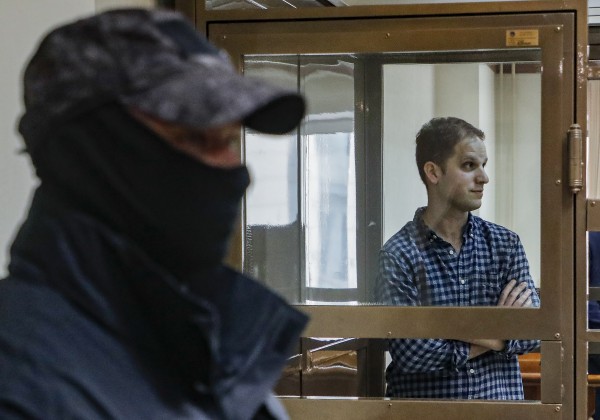Head of Unit
European Commission
External Relations Directorate General
B-1049 Brussels
Belgium
Fax: + 32-2-295 10 28
Vienna, 7 September 2005
Dear Sir,
Thank you for your letter of 11 August setting out the European Commission’s (EC) reply to our letter dated 16 June in which we raise our concerns about the press freedom situation in the People’s Republic of China (“China”).
I read your reply with interest and I very much welcome the various initiatives that the EC is undertaking to improve the situation for human rights* in China; in particular, I am pleased that the possibility of lifting the arms embargo is tied to improvements in this field. The references to early ratification of the International Covenant on Civil and Political Rights and to the release of those people imprisoned following the 1989 Tiananmen Square crackdown are also heartening and to be congratulated.
Let me also say that the International Press Institute (IPI) has considerable respect for the European Union (EU) as an institution that seeks to improve the rights of individuals not only within Europe, but also elsewhere in the world.
I must say, however, that I am perturbed by one part of your letter where you state, “In our [the EC’s] view, trade and human rights should be dealt with in accordance with their own respective logics.” A statement followed by your comment that the EC has “no reason to believe that trade sanctions could lead, at least in the case of China, to any sort of improvement in the situation of human rights.”
While I, like the EC, remain unconvinced that sanctions have a realisable impact on human rights, I am worried that the statement is evidence of the EC’s view that trade and human rights should be treated as two separate and distinct issues. If this is indeed the dominant philosophy, it relieves the EC of the responsibility of creating a comprehensive and unified strategy towards improving democracy in China, while also allowing trade to dominate virtually every single policy decision.
I take the view that this philosophy will also have a series of other unsatisfactory consequences. It invites what should be two elements of the same policy to compete against each other, an outcome detrimental to human rights. Moreover, it exposes contradictions in the EC’s policies towards China, allowing the Chinese leadership to take full advantage by playing one policy against the other. The result is that with no unified policy, China can make the claim that the two areas are to be treated entirely separately. This has led to the present situation where China’s suitability as a trading partner far exceeds its parallel improvements in human rights.
For these reasons, I strongly believe that, if China is to keep making improvements in the field of human rights, the two issues must be treated as part of a single, coherent policy. Under no circumstances should trade and human rights be allowed to run alongside each other: together, but very much apart
Furthermore, and perhaps even more worryingly, if this does not become the accepted principle for the EU’s relationship with China, there may be a number of unintended outcomes reaching far outside that country’s borders.
By continuing to treat China in this manner, the EU risks appearing to accept the principle that some countries may adopt liberal economic policies, while retaining authoritarian control over their societies. If this were to happen, it would lend credence to the idea that there is a second form of acceptable government aside from the democratic model.
While it may be argued that countries such as Saudi Arabia and Singapore already follow this undemocratic model; the fact that China is an emerging superpower, with one of the world’s largest economies, may cause other authoritarian regimes to use the country as a justification for their own repressive societies. The double standard also strikes at the very heart of the notion that human rights are universal, making it even more difficult to convince countries around the world to improve their human rights records.
Therefore, if the above were realised, fundamental principles that have governed democracy and human rights since World War II would be greatly diminished and in grave danger of being completely undermined.
For these reasons, I would urge the EC to strongly reject any notion that, on the question of human rights, there are different principles for different countries. I would also invite you to carry out a thorough review and re-evaluation of the EU’s current strategy towards China in the hope of preventing it from gaining advantage from the lack of a unified position on trade and human rights.
I thank you for your attention and hope that you find the above a satisfactory explanation of IPI’s own views on the subject.
Best regards,
Johann P. Fritz
Director


